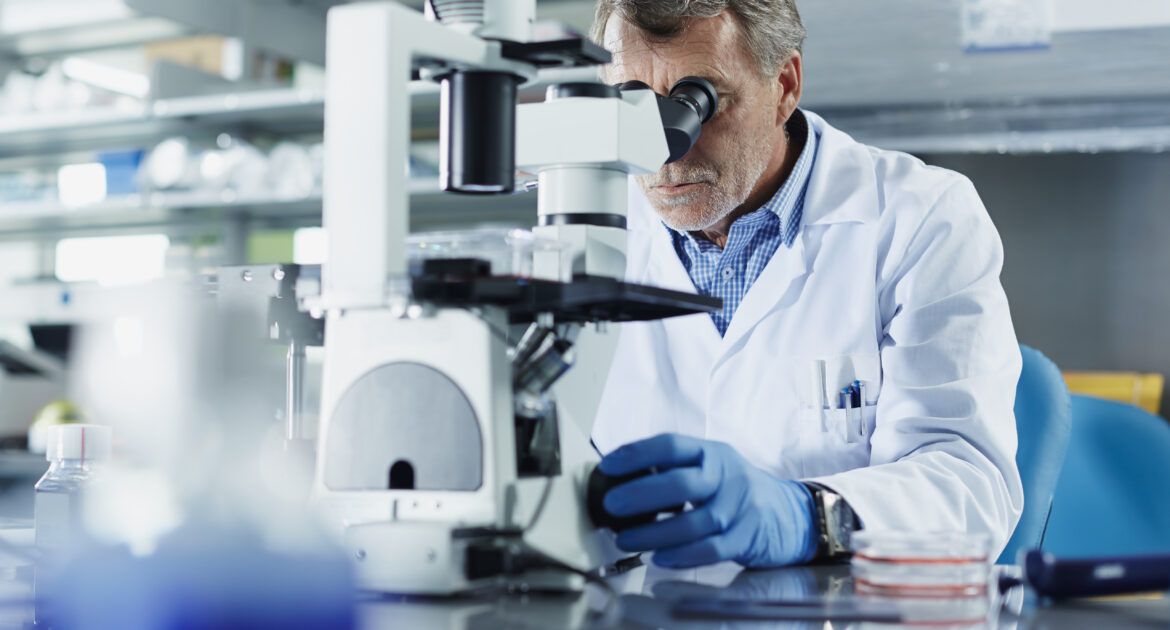Here we look at some of the senior-level academic jobs available in anatomy, physiology and pathology, the qualifications and experience required and opportunities for career progression.
Senior-level academic anatomists, physiologists and pathologists contribute to translational scientific breakthroughs which are essential to improvement in global healthcare.
Academics at this level research and teach in universities and healthcare settings (or both) and have an established reputation in successful research and clinical practice.
Job Descriptions
- Senior Lecturer in Sport and Exercise Physiology
- Assistant Professor in Anatomy
- Professor of Cancer Biology and Immunology
Senior Lecturer in Sport and Exercise Physiology
Senior lecturers in sport and exercise physiology are responsible for teaching undergraduate and postgraduate students following sports sciences and physiotherapy degrees.
As well as teaching, a senior lecturer would be active in the leadership of ongoing and new research projects.
Duties:
- Teaching and supervision of undergraduate and postgraduate students
- Curriculum and module design
- Leading and contributing to applied research, professional practice and other scholarly activity in the field
- Leading a team of lecturers and support staff
- Collaborating with external organisations and stakeholders
What qualifications and experience do you need?
A first degree in sport and exercise physiology or science and a PhD in a related physiological area would be essential for senior lecturer roles. You would also be expected to have significant teaching experience on undergraduate and postgraduate sports sciences/physiology degree programmes.
Clinical experience working in a sport and exercise physiology setting would be highly desirable, for example as a sports therapist or physiotherapist, along with a strong track record in published research outcomes.
Some employers might also require a recognised teaching qualification.
What’s the pay?
You can expect a starting salary in the range of £40,000- £49,999 p.a. for senior lecturing positions.
What can it lead to?
On gaining further teaching and research experience, the next step would be to apply for a professorship in sport and exercise science or related area. Promotion would depend on the quality of your teaching and published research outcomes.
Where can I find jobs?
Most senior lectureships are offered on a full-time, permanent basis. May and June are the busiest time for recruitment for these roles in the UK.
Find senior lecturer in sports and exercise physiology jobs here
Assistant Professor – Anatomy
An assistant professor in anatomy would lead the teaching of anatomy degrees and modules within medical and biosciences disciplines. As well as carrying out research in their specific field of anatomy, they would also lead practical demonstrations and research in a clinical or laboratory environment.
Duties:
- Planning and delivery of teaching to undergraduate and postgraduate medical and sciences students
- Acting as module and curriculum lead in anatomy across a variety of taught programmes
- Contributing to research projects and international collaboration in anatomy and physiology
- Providing leadership and management of a team of lecturers and researchers
What qualifications and experience do you need?
You would need a PhD in a related area and, depending on the role, you may also need a primary medical qualification.
Extensive clinical, research and teaching experience in anatomy would also be essential.
Some institutions may also require a recognised teaching qualification.
What’s the pay?
Assistant professors or senior lecturers in anatomy can expect to earn in the region of £40,927 to £50,296 p.a., depending on qualifications and experience.
What can it lead to?
The next move up the academic ladder would be a professorship. Alternatively, you might opt to move into a research-only role as a senior research associate or lead.
Where can I find jobs?
Assistant professor jobs tend to be full-time and permanent so are less widely available than lecturing roles.
Find assistant professor in anatomy jobs here
Professor of Cancer Biology and Immunology
A professor of cancer biology and/or immunology contributes to and develops internationally-recognised cancer research projects. They also teach medical and sciences students, as well as managing a team of lecturers and researchers.
Clinical professors combine their teaching and research with treating cancer patients in a healthcare setting.
Duties:
- Conducting national and international research projects in an area of cancer biology and immunology
- Planning and delivery of teaching to undergraduate and postgraduate students
- Working closely with the Head of School as part of the university’s senior leadership team
- Enhancing the standing of the university in cancer research, nationally and internationally
What qualifications and experience do you need?
Candidates from a scientific research background would need a PhD in a field related to cancer biology and an established research reputation.
Clinical professors of cancer biology would also need a relevant PhD as well as being a qualified doctor specialising in oncology and cancer treatment.
A proven track record in high-quality teaching and published research would also be essential for this academic level.
What’s the pay?
Salaries for professorships and clinical professorships vary but can be in the range of £70,080 to £101,432, depending on experience and research output.
What can it lead to?
On establishing an extensive research and international collaboration portfolio and leadership skills, professors of cancer biology can progress to a Head of School role or a Deanship of a medicine or health/life sciences faculty.
Where can I find jobs
As these are high-level roles that require a niche skillset, there tends to be a smaller pool of professor of cancer biology jobs available. These roles are generally offered to senior clinical lecturers or associate professors with significant research experience.
Find professor of cancer biology jobs here
Further Information:
- Academic jobs in Anatomy, Physiology and Pathology
- Lecturing jobs in Anatomy, Physiology and Pathology
- Research jobs Anatomy, Physiology and Pathology





Leave a Reply